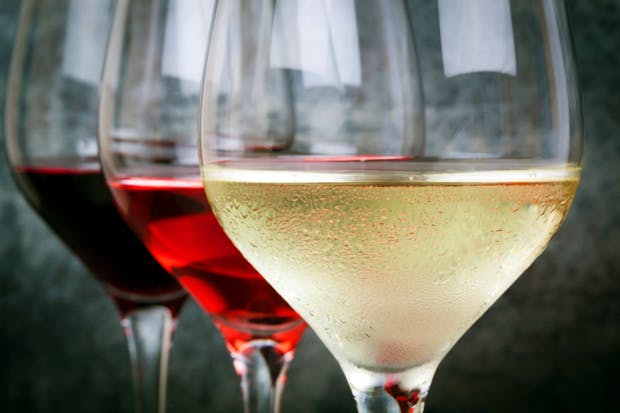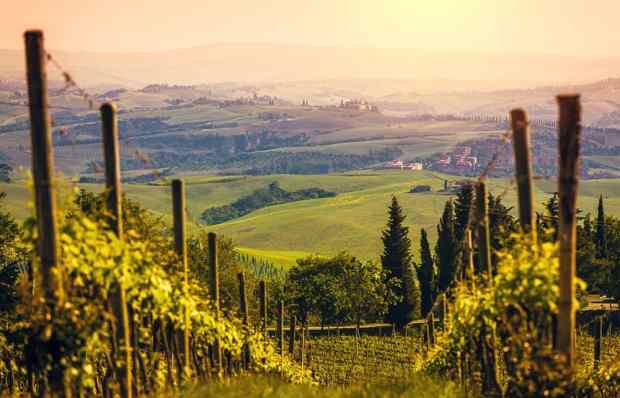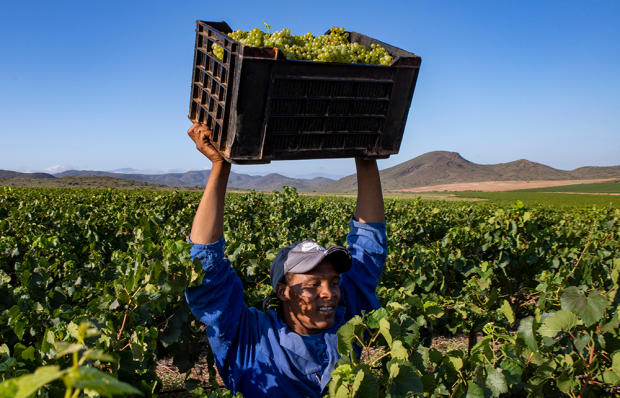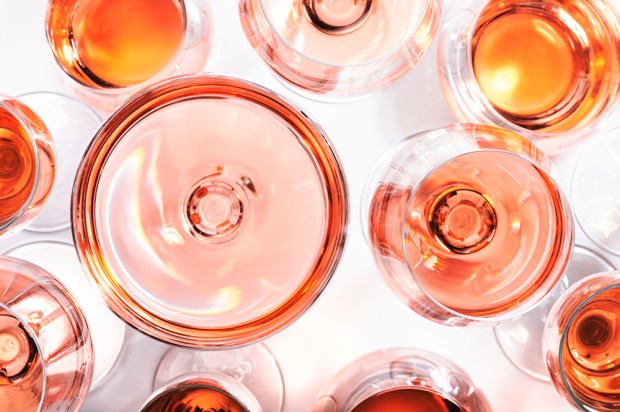The supermarket chains are not always blameworthy. Their missionary efforts have helped to ensure that wine drinking in Britain is much less bedevilled by social anxiety than it used to be. There was a time when Mateus rosé, God help us, exploited that in its TV ads. The boss invited home for dinner: how could the husband navigate the social minefield of serving wine? Answer, Mateus rosé. How sad. If I am ever asked about wine by someone who professes to know nothing, I always make three points. First, trust your taste buds and your nose. If the wine smells like a car engine, there is something wrong — and not with your olfactory system. Second, if you are so inclined, there is a lot of enjoyment to be had from wine lore. Third, and above all, wine drinking is fun: nunc est bibendum. Solemnity and concentration should always be mingled with sensuality and revelry.
The Greeks and the Romans understood this, which their temple ceremonies reflected. So do Messrs Berry Bros. in their temple at the foot of St James’s Street, where they have been dispensing pleasure for more than 300 years. They were in business before the Union of 1707. They are also in considerably better shape. While half of Scotland wishes to turn its back on the world economy, Berry Bros. embraces it. Simon Berry described a recent tasting at which a sophisticated, self-confident Chinaman was being twitted by Brits who knew that he would be able to cope. He was. Spreading his arms in mock self-deprecation, he said: ‘This, from people who put milk in their tea.’
Berrys’ premises have a reverential aspect. In ‘Little Gidding’, T.S. Eliot writes of a place where prayer has been valid; where his own prayers blend with those of the reverend dead. Simon Berry’s dining room inspires a similar reflection. You are drinking where drink has been valid; the bottles of previous eras are displayed on the chimneypiece. It might be thought that such reminders of transience would induce melancholy, but this must be just about the least melancholy room in the world.
It was a spring day, and we started with the ideal wine: a Champagne, Mailly Grand Cru L’Intemporelle 2008. It was as if spring had been bottled. There was a joyous freshness: larks, trout preparing for the mayfly, cherry blossom, the first wild flowers in the Swiss Alps. There was also subtlety, finesse and length: all in all, hard to surpass. We moved on to a Saint-Aubin 1er cru Murgers des Dents de Chien, produced by Jean-Claude Bachelet. Butter, hay, depth, a hint of sweetness; it was the best Saint-Aubin I have ever tasted — not far off good Puligny or Chassagne.
We then climbed beyond spring — or any season — towards glimpses of eternity. The first Bordeaux was a ’96 Cheval Blanc, the most left-bank of all the serious right-bank clarets. Combining flavour, complexity and, above all, a gracious power, it filled the mouth and delighted the palate. Yet it was only making straight the way.
One would need Wagner to orchestrate the fanfare of trumpets which the next wine deserved. 1945, with France in the shadow of war, it was as if Ste Clotilde, St Louis and Ste Jeanne d’Arc had implored the Eternal Throne to show mercy. The ’45 Bordeaux vintage was the answer to their petition. Simon served us the Latour ’45, the greatest wine I have ever drunk. A couple of days later, I met a Scottish aristocrat who has some in his cellar. In current circumstances, my advice was to move it to England lest a Scot-Nut jacquerie seize it for an Irn-Bru cocktail. If Scotland were to regain its sanity, there would be no need to do anything. This is a wine in the splendour of fighting-fit maturity.
Despairing of their current politics, one’s French friends will assert their faith in la France profonde. That Latour was la France profonde: la France éternelle.
Got something to add? Join the discussion and comment below.
Get 10 issues for just $10
Subscribe to The Spectator Australia today for the next 10 magazine issues, plus full online access, for just $10.















Comments
Don't miss out
Join the conversation with other Spectator Australia readers. Subscribe to leave a comment.
SUBSCRIBEAlready a subscriber? Log in